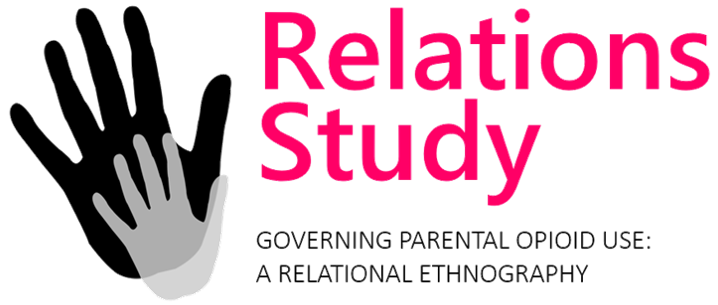In this blog, Hannah Carver, Co-Investigator and Lead on Learning Alliances, discusses the Learning Alliance approach within the Relations Study, and the pros and cons of online meetings.
The Learning Alliance approach aims to bring together a range of relevant stakeholder networks and involve them in all aspects of the study, from start to end. Involving people with relevant experience within research studies is vital, in ensuring the accountability and transparency of research and also to make sure the findings have impact.
Many funders expect researchers to have ‘Patient and Public Involvement (PPI)’ as part of their studies. This is even more important within research with people who might experience marginalisation and stigma, so is especially relevant for the Relations study as we are working with parents affected by drug use, and their families. The Learning Alliance approach goes much further and involves wider networks of people who are stakeholders in a research study, not just small numbers of individuals with shared lived experiences.
A traditional PPI model, might have one group of people who have lived experience of being parents who use drugs, perhaps also including affected family members. Within the Relations study, however, it was important for us to bring together people with a wide range of relevant experiences within the field of parental drug use. This is because in the Relations study we are looking at how relationships between different groups of people (service providers and workers of different types, policy makers, families, children, and parents who use drugs) affect the lives and experiences of families affected by drug use. The Learning Alliance approach helps us to involve larger networks of people. We are working with four different Learning Alliances:
- parents who used drugs;
- affected family members (such as parents of parents who use drugs);
- young people (whose parents use(d) drugs);
- people working in the field, in substance use and children and families services and in policy and commissioning.
When the Relations study started, we planned two half day face-to-face Learning Alliance events, to be held every four months in London and Edinburgh (our study sites). However, we had to change our plans due to the COVID-19 pandemic, meaning that all research activity had to go online. That meant that instead of having a Scottish and English group meeting every few months, we now have regular meetings with groups made up of individuals based in Scotland and England more broadly, who all share a particular common experience.

This approach has had lots of benefits: we are able to meet regularly and develop good relationships with members (and also members get to know each other better, which facilitates honest and open conversations in our meetings). We can identify and discuss key differences in experiences, service availability, policy and practice across Scotland and England, which is really important for us to understand as researchers. And finally, we are able to bring key issues and challenges posed during our fieldwork to the various groups to help inform the data collection. In future meetings, we will be working closely with all members to make key decisions around dissemination of findings, to ensure the study findings can be circulated as widely as possible, and therefore have an impact for parents who use drugs, their families and those working in the field.
While running a Learning Alliance process can be time consuming, it really is valuable for research, particularly studies working with marginalised groups, with the aim of informing policy and practice. Moving the process online also has pros and cons: we can meet in the comfort of our homes and offices without having to travel; and attendance can be flexible and fit around other work, caring responsibilities etc. However, it does depend on having access to devices and good Wi-Fi connections! As a research team we have found it valuable getting to know each Learning Alliance member, drawing on their experience and expertise, and look forward to learning more with them as the study progresses. We hope our members find the process beneficial too!
